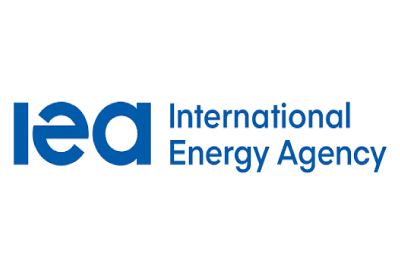Canada’s Bold Policies and Support for Innovation Can Underpin a Successful Energy Transition Says New IEA Policy Review

January 28, 2022
Canada has embarked on an ambitious transformation of its energy system, and clear policy signals will be important to expand energy sector investments in clean and sustainable energy sources, according to a policy review by the International Energy Agency (IEA).
Since the IEA’s last in-depth review in 2015, Canada has made a series of international and domestic climate change commitments, notably setting a target to cut greenhouse gas emissions by 40–45 percent from 2005 levels by 2030 and a commitment to reach net-zero emissions by 2050.
To support those climate and energy targets, governments in Canada have in recent years worked on a number of policy measures, including an ambitious carbon-pricing system, a clean fuels standard, a commitment to phase out unabated coal-fired electricity by 2030, nuclear plant extensions, methane regulations in the oil and gas sector, energy efficiency programs and measures to decarbonize the transportation sector.
“Canada has shown impressive leadership, both at home and abroad, on clean and equitable energy transitions,” said Fatih Birol, IEA Executive Director, who is launching the report today with the Honourable Jonathan Wilkinson, Canada’sMinister of Natural Resources. “Canada’s wealth of clean electricity and its innovative spirit can help drive a secure and affordable transformation of its energy system and help realize its ambitious goals. Equally important, Canada’s efforts to reduce emissions — of both carbon dioxide and methane — from its oil and gas production can help ensure its continued place as a reliable supplier of energy to the world.”
Canada’s profile as a major producer, consumer and exporter of energy presents both challenges and opportunities for reaching the country’s enhanced targets. Energy makes up 10 percent of gross domestic product and is a major source of capital investment, export revenue and jobs. Moreover, Canada’s highly decentralized system of government means that close coordination between federal, provincial and territorial governments is essential for a successful energy transition.
“This report acknowledges Canada’s ambitious efforts and historic investments to develop pathways to achieve net-zero emissions by 2050 and ensure a transition that aligns with our shared objective of limiting global warming to 1.5 degrees Celsius,” said Minister Wilkinson. “These are pathways that make the most sense for our people, our economy and our country and will also yield technology, products and know-how that can be exported and applied around the world.”
The IEA finds that emissions intensity from Canada’s oil and gas production has declined in recent years, but the sector remains a major source of greenhouse gases, accounting for about a quarter of the country’s GHG emissions. Along with strong action to curb methane emissions, improving the rate of energy technology innovation will be essential for the deep decarbonization that is needed in oil and gas production, as well as in the transportation and industry sectors. Canada is actively advancing innovation in a number of key fields, including carbon capture, utilisation and storage; clean hydrogen; and small modular nuclear reactors, with a view to serving as a supplier of energy and climate solutions to the world. The IEA notes that further federal support for research, development and demonstration would help accelerate progress toward these goals.
The IEA is also recommending that Canada’s federal government promote a comprehensive energy efficiency strategy in consultation with provinces and territories that sets clear targets for energy efficiency in the buildings, industry and transportation sectors.
The IEA report highlights that Canada’s electricity supply is among the cleanest in the world, with over 80 percent of supply coming from non-emitting sources, thanks to the dominance of hydro and the important role of nuclear. To further support the expansion of clean power and electrification, the report encourages increased interconnections among provinces and territories to ensure balanced decarbonization progress across the country.
The IEA commends Canada on its efforts to advance a people-centred approach to its clean energy transition, including initiatives to promote diversity and inclusion in clean energy sectors; programs to increase access to clean energy in northern, remote and Indigenous communities; and actions to enable just transitions for coal workers and their communities.
“Canada has laid out a comprehensive set of policy measures and investments across sectors to meet its climate targets, including a strong clean energy component to its COVID-19 economic recovery efforts,” said Dr. Birol. “I hope this report will help Canada navigate its path toward economy-wide emissions reductions and a net-zero future.”











![Guide to the Canadian Electrical Code, Part 1[i], 26th Edition– A Road Map: Section 56](https://electricalindustry.ca/wp-content/uploads/2022/11/Guide-CE-Code-2.png)



